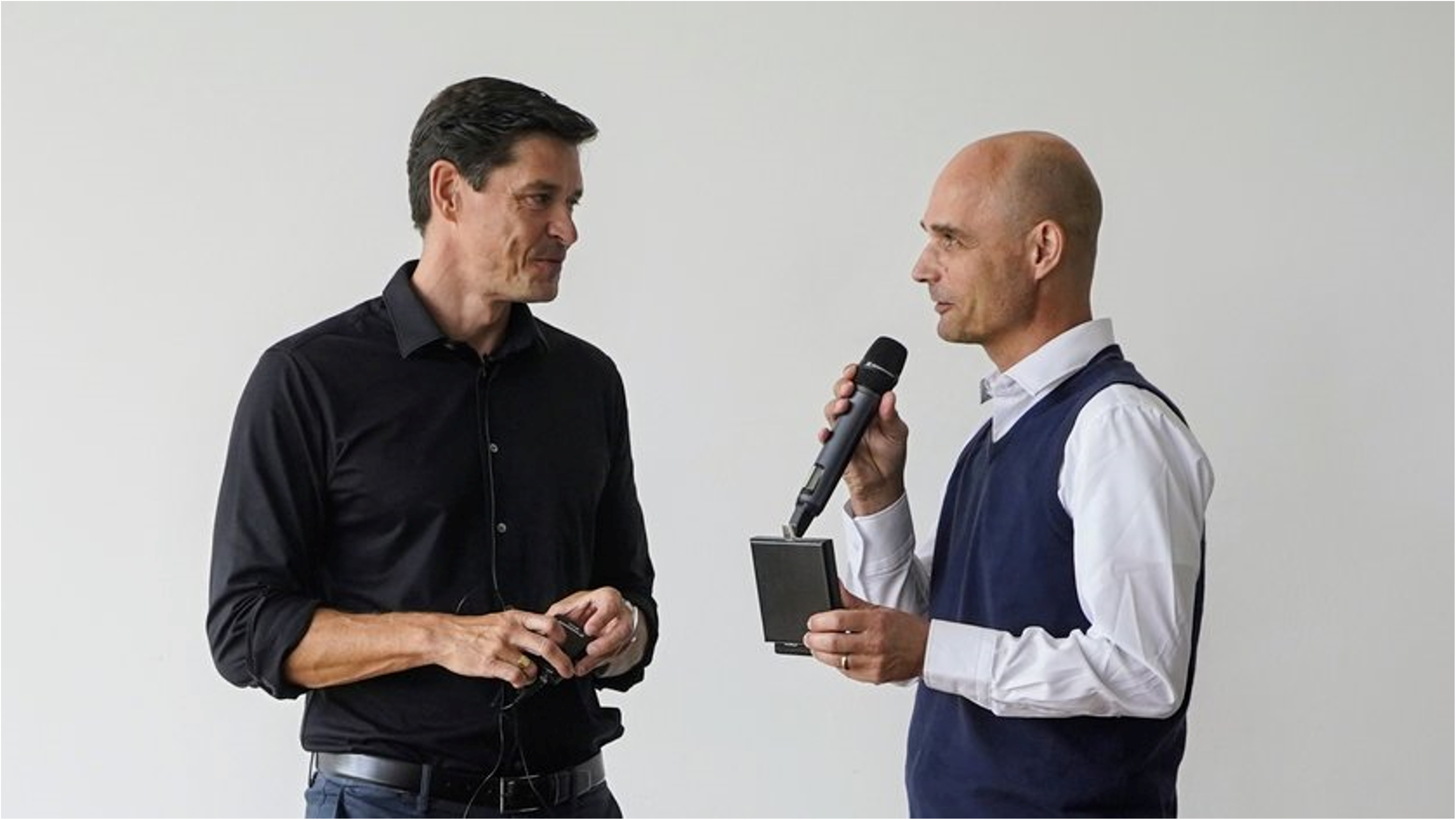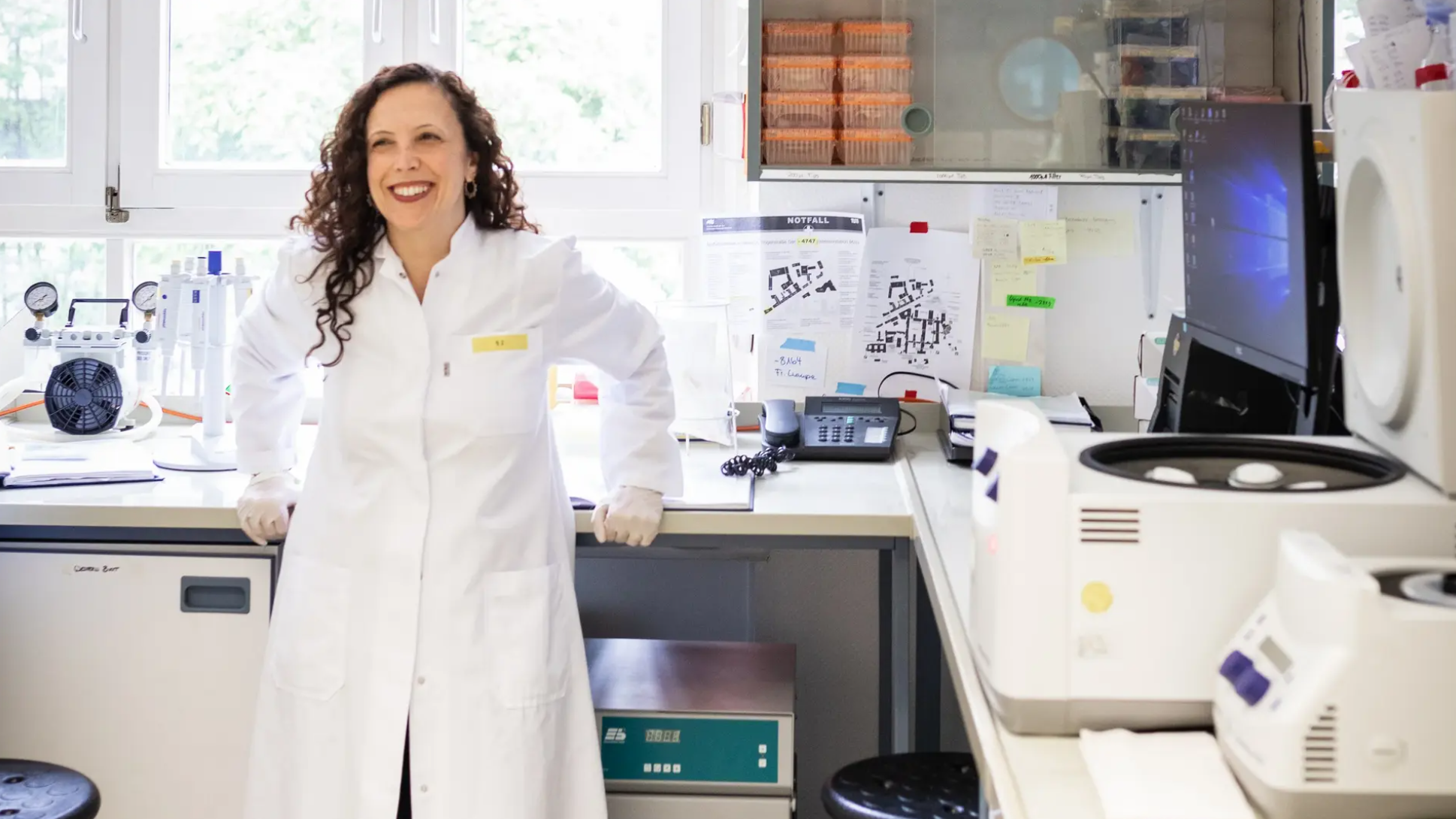Otto Meyerhof Medal for Hendrik Dietz

In recognition of his outstanding scientific achievements, Joachim Spatz, Managing Director of the Max Planck Institute for Medical Research in Heidelberg, honored Hendrik Dietz from the Technical University of Munich with the Institute’s Otto Meyerhof Medal.

In a festive ceremony at the Max Planck Institute for Medical Research (MPImF) in Heidelberg, Joachim Spatz awarded the Otto Meyerhof Medal to the German biophysicist Hendrik Dietz and honored his achievements: “Hendrik Dietz is the leading scientist who has succeeded in bringing physical principles of nanoscopic, molecular building blocks into medically relevant applications. He is the ideal recipient of the Otto Meyerhof Medal.”
Meyerhof Lecture on “Molecular machines of the future”
The award was preceded by the Meyerhof Lecture, which is given by the medal winners and was established in 1997. In his lecture entitled “Molecular machines of the future”, Hendrik Dietz outlined his goal of building molecular devices and machines that can be combined to form autonomously functioning systems and perform user-defined tasks. To achieve this goal, he wants to adapt and use the physical principles underlying the formation of natural molecular motors and viruses. He explained how he goes about this in his lecture.
In memory of Otto Meyerhof
The Meyerhof Lecture was established in 1997 and takes place every two years. The medal has been awarded and combined with it since 2021. This year, both the Meyerhof Lecture and the medal ceremony were the focus of a two-day symposium of the same name. It took place on September 9 and 10 in memory of Nobel Prize winner Otto Meyerhof, one of the founders of the MPImF. He headed the Department of Physiology from its founding year in 1929 until 1938, when the living and working conditions under National Socialism became unbearable for him as a Jew and he, along with other Jewish employees of the institute, fled Germany.
Guest of honor from California: Meyerhof‘s granddaughter arrives
Otto Meyerhof fled to the USA, where he died in 1951. His descendants still live there today. The MPImF made contact with them and invited Ruth Emerson, one of Otto Meyerhof‘s granddaughters, to the Symposium. Ruth Emerson brought unique historical objects with her on her trip to Heidelberg: the stethoscope and the dissection tools that belonged to Otto Meyerhof and with which he himself worked. On the occasion of the Symposium, Ruth Emerson donated them to the Institute – a generous gift that enriches the MPImF‘s historical exhibition.
Symposium with a top-class program
The program of the Meyerhof Symposium 2024 offered lectures by leading scientists from various fields of research: Andrea Ablasser (EPFL), Frank Noé (FU Berlin), Ilaria Testa (SciLifeLab), Eric Schreiter (HHMI Janelia), Michael Schmitt (Heidelberg University Hospital) and Xiao Wang (Broad Institute). The audience consisted of scientists from the Institute, the entire scientific community of Heidelberg and many other interested guests.




